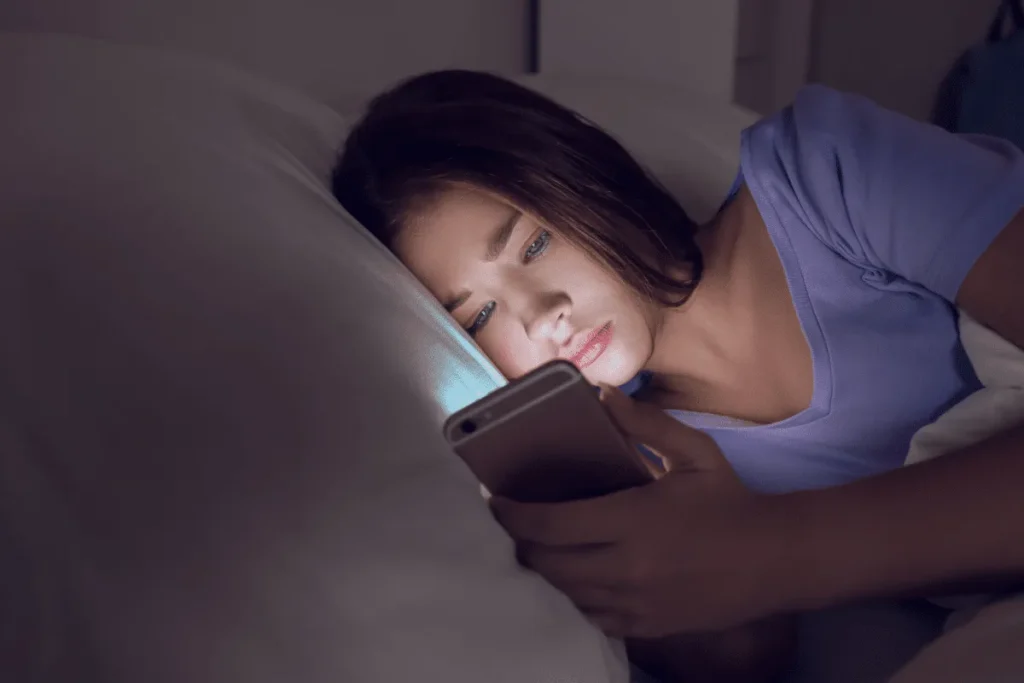What Are the Signs of Depression in a Teenager?
- Depression
- April 13,2022
- BY Beachside Teen Staff
- 0 Comments
Signs of Depression in Teens

Depression among teenagers is more common than many parents realize, affecting approximately 20% of adolescents before they reach adulthood.
Recognizing the signs of depression in teens is crucial for early intervention and treatment.
Unlike typical teenage moodiness, clinical depression involves persistent symptoms that interfere with daily functioning, relationships, and academic performance.
Understanding these warning signs can help parents, educators, and caregivers provide the support teens need during this challenging time. Depression in adolescence often looks different from adult depression, making it essential to know what to watch for.
Learn more about our teen depression programs in Los Angeles or. call us now at 888-254-0916.
Signs of Depression in Teens
Teen depression manifests through various symptoms that can be categorized into behavioral, emotional, and physical indicators. These signs often overlap and may vary in intensity from one teenager to another.
Behavioral Signs of Depression
Academic and Social Changes:
- Declining grades or loss of interest in schoolwork
- Frequent absences from school or activities
- Withdrawal from friends and family members
- Abandoning hobbies or activities they once enjoyed
- Increased isolation or spending excessive time alone
Risk-Taking and Concerning Behaviors:
- Experimenting with drugs or alcohol
- Reckless driving or other dangerous activities
- Self-harm behaviors or talking about suicide
- Running away from home or staying out without permission
- Aggressive or rebellious behavior that’s out of character
Emotional Signs of Depression
Mood and Emotional Regulation:
- Persistent sadness, emptiness, or hopelessness
- Frequent irritability, anger, or hostility
- Extreme sensitivity to criticism or rejection
- Feelings of worthlessness or excessive guilt
- Mood swings that seem more intense than typical teenage emotions
Cognitive and Emotional Symptoms:
- Difficulty concentrating or making decisions
- Loss of motivation or feeling overwhelmed by simple tasks
- Negative self-talk or pessimistic outlook
- Crying spells or emotional outbursts
- Feeling disconnected from others or emotionally numb
Physical Signs of Depression
Sleep and Energy Changes:
- Sleeping too much or difficulty falling/staying asleep
- Chronic fatigue or loss of energy
- Restlessness or feeling slowed down
- Changes in appetite leading to weight loss or gain
Physical Complaints:
- Frequent headaches or stomachaches without clear medical cause
- Unexplained aches and pains
- Changes in personal hygiene or appearance
- Slowed speech or movements
Does My Teen Have Depression? – Take Our Free Test Today
What Causes Teen Depression?
Teen depression typically results from a complex interaction of multiple factors rather than a single cause. Understanding these contributing elements can help families address underlying issues and seek appropriate treatment.
Biological Factors:
- Genetic predisposition and family history of depression
- Brain chemistry imbalances affecting neurotransmitters
- Hormonal changes during adolescence
- Medical conditions or medications that affect mood
Environmental and Social Factors:
- Chronic stress from academic pressure or family conflicts
- Bullying, social rejection, or peer pressure
- Traumatic experiences such as abuse, loss, or major life changes
- Social media and cyberbullying impacts
- Substance abuse or exposure to violence
Psychological Factors:
- Low self-esteem or negative thought patterns
- Perfectionism or unrealistic expectations
- Poor coping skills for handling stress
- Previous episodes of depression or anxiety
How Is Depression Treated in Teens?
Effective treatment for teen depression typically involves a comprehensive approach that may include therapy, medication, lifestyle changes, and family support. Early intervention significantly improves outcomes and reduces the risk of depression continuing into adulthood.
Professional Treatment Options:
- Psychotherapy: Cognitive-behavioral therapy (CBT) and interpersonal therapy have shown strong effectiveness for teen depression
- Medication: Antidepressants may be prescribed in moderate to severe cases, with careful monitoring by healthcare professionals
- Family therapy: Involving family members can improve communication and address relationship dynamics
- Group therapy: Peer support groups can help teens feel less isolated and learn coping strategies
- Intensive Outpatient Programs (IOP): Structured programs providing therapy and support while allowing teens to remain at home
- Residential treatment: For severe depression that hasn’t responded to outpatient care, residential facilities provide 24-hour therapeutic support in a structured environment. These programs typically last several weeks to months and include individual therapy, group sessions, family involvement, medication management, and academic support to help teens stabilize before transitioning back home
Supporting Your Teen at Home:
- Maintain open, non-judgmental communication
- Encourage regular exercise, healthy eating, and consistent sleep schedules
- Help them stay connected with supportive friends and activities
- Be patient and consistent while they work through treatment
- Learn about depression to better understand their experience
When to Seek Immediate Help: If your teen talks about suicide, self-harm, or feeling hopeless, contact a mental health professional immediately. The National Suicide Prevention Lifeline (988) provides 24/7 support for crisis situations.
Find Help For Teen Depression in Los Angeles Today
Recognizing signs of depression in teens is the first step toward getting them the help they need. Depression is a treatable condition, and with proper support and professional care, teenagers can recover and develop healthy coping strategies for the future.
Remember that seeking help is a sign of strength, not weakness. Your teen’s mental health is just as important as their physical health, and professional support can make a significant difference in their recovery and long-term wellbeing.
At Beachside Teen, our teen treatment center in Malibu and greater Los Angeles can help your family find healing. Call us now at 888-254-0916.




